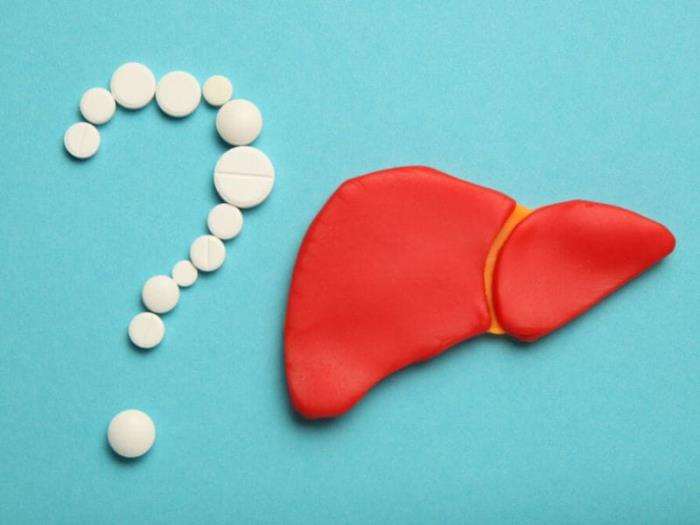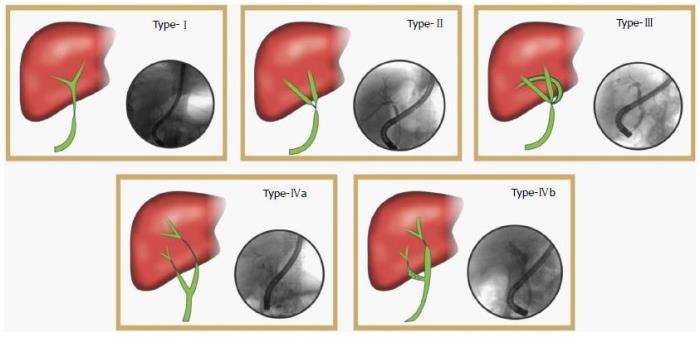Liver transplant surgery carries significant risks due to the complexity of the procedure and the patient's underlying health conditions. Potential risks include surgical complications, organ rejection, infections, and long-term effects of immunosuppressive medications. A thorough pre-transplant evaluation and close post-operative monitoring are critical to minimize these risks.
Medical disclaimer: This content is for general awareness and does not replace a doctor’s consultation. For diagnosis or treatment decisions, consult a qualified specialist.
Immediate Post-Surgical Complications in Liver Transplant Patients
In the immediate post-surgical period, complications may include bleeding, bile leaks, blood clots, and issues with the blood supply to the new liver. These complications require prompt detection and management to ensure the transplanted liver functions properly and to safeguard the patient's recovery.
Risk of Organ Rejection After Liver Transplantation
Organ rejection is a common risk following liver transplantation as the immune system may recognize the new liver as foreign and attack it. Rejection can occur within weeks (acute rejection) or over months to years (chronic rejection). Immunosuppressive medications play a key role in preventing and managing rejection.

Managing Acute and Chronic Rejection of the Liver Graft
Acute rejection typically occurs within the first three months after transplantation and is often treatable with adjustments to immunosuppressive therapy. Chronic rejection, which develops over a longer period, is harder to reverse and may require a repeat transplant in severe cases. Regular monitoring and early intervention are essential to manage these conditions effectively.
Common Infections After Liver Transplant Surgery
Infections are a major concern after liver transplant surgery due to the use of immunosuppressive medications. Common infections include respiratory infections, urinary tract infections, and opportunistic infections such as cytomegalovirus (CMV). Preventative measures, including prophylactic antibiotics and antifungal medications, help reduce infection risks.
The Impact of Immunosuppressive Medications on Overall Health
While necessary to prevent organ rejection, immunosuppressive medications can increase the risk of infections, diabetes, high blood pressure, kidney damage, and certain cancers. Regular follow-up and personalized medication adjustments are vital to minimize these side effects and maintain overall health.
Bleeding and Blood Clot Risks During and After Liver Transplant
Bleeding is a common risk during liver transplant surgery due to the high vascularity of the liver. Post-surgery, patients may also face an increased risk of blood clots, which can obstruct blood flow to the transplanted liver or other vital organs. Careful surgical techniques and anticoagulation therapy when necessary help mitigate these risks.
Bile Duct Complications Following Liver Transplantation
Bile duct complications are among the most common issues after liver transplantation. These can include bile leaks, strictures, or obstructions, which can impair the flow of bile from the liver. Early detection through imaging and laboratory tests is crucial for effective management. Treatment often involves minimally invasive procedures such as endoscopic stent placement or surgical revisions to restore proper bile flow. Regular follow-up and monitoring can help mitigate long-term complications.

Managing Delayed Graft Function in Liver Transplant Recipients
Delayed graft function (DGF) occurs when the transplanted liver takes longer than expected to resume normal function. This condition may result from ischemia-reperfusion injury or complications during surgery. Management involves supportive care, including optimization of blood flow, infection control, and careful adjustment of immunosuppressive medications. In severe cases, additional interventions, such as a second transplant, may be necessary.
Long-Term Risks: Diabetes and High Blood Pressure After Transplant
Diabetes and hypertension are common long-term complications in liver transplant recipients, often linked to immunosuppressive drugs such as corticosteroids or calcineurin inhibitors. These conditions require proactive management through lifestyle changes, medications, and regular monitoring. Early intervention is key to preventing severe complications, including cardiovascular disease.
The Risk of Cancer Due to Immunosuppressive Therapy
Immunosuppressive medications, essential to prevent organ rejection, can increase the risk of cancer by suppressing the immune system. Skin cancer and lymphoma are the most frequently observed malignancies in liver transplant recipients. Preventative strategies include regular cancer screenings, sun protection, and dose adjustments of immunosuppressive drugs where appropriate.
Liver Disease Recurrence in the Transplanted Liver
Certain liver diseases, such as hepatitis C or autoimmune hepatitis, have a risk of recurring in the transplanted organ. Close monitoring through regular blood tests and biopsies is essential to detect early signs of recurrence. Treatments may include antiviral therapies or adjustments in immunosuppressive regimens to prevent further liver damage.
Neurological Complications After Liver Transplant Surgery
Neurological complications, including seizures, encephalopathy, or peripheral neuropathy, can occur after a liver transplant. These issues may stem from metabolic imbalances, infections, or side effects of medications. Comprehensive neurological assessment and timely management, including medication adjustments, are vital to addressing these complications effectively.
Psychological Challenges in Liver Transplant Recovery
The recovery process can be psychologically demanding for liver transplant recipients. Patients often experience anxiety, depression, or post-traumatic stress related to their surgery or long-term care. Psychological support, counseling, and peer support groups play a critical role in fostering mental well-being during recovery.
Monitoring for Cardiovascular Complications Post-Transplant
Cardiovascular disease is a leading cause of morbidity in liver transplant recipients. Contributing factors include pre-existing conditions, immunosuppressive drugs, and post-transplant metabolic disorders. Regular cardiovascular evaluations, lifestyle modifications, and medications are essential to mitigate these risks.
Gastrointestinal Issues After Liver Transplantation
Gastrointestinal complications, such as ulcers, diarrhea, or infections, are common after liver transplant surgery. These issues may be caused by immunosuppressive drugs or changes in gut microbiota. Prompt evaluation and treatment, including medication adjustments and dietary modifications, are critical for maintaining gastrointestinal health.
Preventing and Managing Kidney Dysfunction Post-Transplant
Kidney dysfunction is a potential complication after liver transplantation, often due to nephrotoxic immunosuppressants or underlying conditions. Preventative strategies include regular renal function monitoring, optimizing immunosuppressive therapy, and ensuring adequate hydration. In severe cases, renal replacement therapy may be required.
The Role of Regular Follow-Ups in Detecting Early Complications
Regular follow-ups allow for the early detection and management of complications such as rejection, infections, or metabolic disorders. These visits typically involve physical exams, blood tests, and imaging studies to ensure the transplanted liver is functioning properly and to address any emerging issues promptly.
Advances in Minimizing Risks in Liver Transplant Surgery
Recent advancements in surgical techniques, organ preservation methods, and immunosuppressive therapies have significantly reduced the risks associated with liver transplantation. Innovations such as machine perfusion and minimally invasive procedures enhance outcomes and minimize complications, improving long-term survival rates.
The Role of Liver Transplant in Overcoming Liver Cancer
Explore the role of liver transplant in overcoming liver cancer. This blog highlights how liver transplantation can offer a curative treatment option for eligible patients with liver cancer, improving survival rates and quality of life.
The Importance of Liver Transplant in Treating Hepatitis C
Understand the importance of liver transplant in treating Hepatitis C. This article explains how liver transplantation can help patients with end-stage liver disease caused by Hepatitis C, providing a new chance for improved health and recovery.
Coping with Long-Term Complications After Liver Transplant
Managing long-term complications requires a multidisciplinary approach involving hepatologists, dietitians, and psychologists. Support groups and educational programs can help patients and families navigate challenges, ensuring a higher quality of life post-transplant.
Best Liver Transplant in India
The Best Liver Transplant in India provides life-saving treatment for patients with end-stage liver disease, offering advanced surgical techniques and comprehensive post-transplant care for successful recovery.
Best Liver Transplant Hospitals in India
The Best Liver Transplant Hospitals in India are equipped with cutting-edge technology and expert medical teams, ensuring top-notch care and optimal recovery for liver transplant patients.
Liver Transplant Cost in India
The Liver Transplant Cost in India offers an affordable solution for patients needing liver transplantation, ensuring access to world-class care at competitive pricing.
Best Liver Transplant Surgeons in India
The Best Liver Transplant Surgeons in India are highly skilled in performing liver transplants, providing precise surgeries and personalized care to ensure the best possible outcomes for their patients.
FAQ Section
1. What are the most common risks associated with liver transplant surgery?
Common risks include bile duct complications, infections, organ rejection, and complications from immunosuppressive medications such as diabetes or kidney dysfunction.
2. How is organ rejection managed in liver transplant patients?
Rejection is managed by adjusting immunosuppressive medications and monitoring liver function closely to prevent irreversible damage.
3. What infections are most common after liver transplant surgery?
Respiratory infections, urinary tract infections, and cytomegalovirus (CMV) infections are frequent post-transplant concerns.
4. What are bile duct complications, and how are they treated?
Bile duct complications include leaks or strictures that impair bile flow. Treatment options include endoscopic procedures, stent placement, or surgical corrections.
5. How does immunosuppressive medication impact overall health?
Immunosuppressive drugs are essential for preventing rejection but can lead to increased risks of infections, cancer, and metabolic disorders such as diabetes or hypertension.
Liver transplant involves replacing a diseased liver with a healthy one from a donor, while liver resection involves removing a portion of the liver affected by disease. Transplants are typically considered for end-stage liver disease or severe liver damage, whereas resections are often used for localized tumors or conditions where part of the liver can be removed. Transplants require lifelong immunosuppressive medication to prevent rejection, while resections do not. Recovery times and risks also differ, with transplants generally having longer recovery periods and higher initial risks compared to resections. Key Differences Between Liver Transplant and Liver Resection Surgery
A living-donor liver transplant offers reduced wait times, improved outcomes, and the flexibility to schedule surgery at a convenient time, utilizing a healthier donor liver, while a deceased donor liver transplant is crucial for patients with acute liver failure or severe liver disease when a living donor is not available, ensuring life-saving options through established medical protocols. Benefits of Living-Donor Liver Transplant vs. Deceased Donor
Managing medications and side effects after a liver transplant is crucial for recovery and long-term health. Patients must take immunosuppressants to prevent organ rejection, along with other medications to manage side effects like nausea, high blood pressure, and infections. Regular monitoring, adherence to prescribed doses, and communication with healthcare providers are essential. Understanding potential side effects and how to address them can significantly improve outcomes. How to Handle Post Liver Transplant Medications and Side Effects